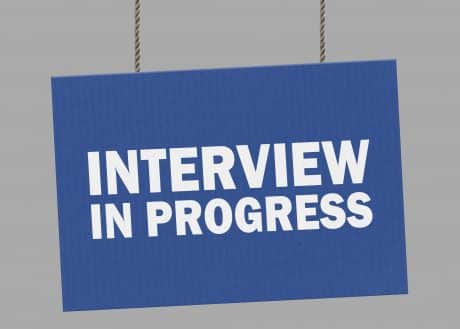When they’re on the hunt for a job, many candidates focus their energy on promoting their experience.

Soft Skills Should be an Important Consideration in Your Hiring Process
While a robust resume that indicates plenty of job-specific knowledge is usually a major plus, it should not be enough to convince an employer to hire them. When several candidates of a similar caliber apply for the same position, soft skills can be the factor that distinguishes one individual from the others. As an employer, you already realize that candidates who know how to practice the behaviors that go beyond just doing the job are at a premium. Possessing a blend of strong social, communication and interpersonal skills says that the candidate will likely perform his or her duties well and will get along with the rest of team. In essence, soft skills complement hard skills. Whether you’re recruiting for talent in the hospitality industry or the high-tech field, working well with others is just as important as having the right technical acumen.
Soft skills are some of the most difficult competencies for people to understand.
Hiring managers struggle to define and recognize them because they’re fluid and highly personalized to each individual. They may include nearly any ability or behavior that pertains to how an individual behaves and interacts with others. Unlike hard skills which are easily taught, quantified and defined, soft skills are more challenging to measure and to demonstrate proficiency in these areas. They’re also highly transferable and can be an asset to virtually any occupation. Although it takes more effort and creativity to properly demonstrate soft abilities, they’re extremely beneficial to career success.
What traits comprise soft skills? They include a wide range of intangible abilities, such as:
- Interpersonal skills: These skills pertain to how an employee relates to others, both inside and outside the company. When interacting with co-workers, teamwork and collaboration can be very valuable. With customers, it’s important to demonstrate empathy and insight in order to understand and resolve issues and build ongoing relationships. Strong listening skills and communication skills are valuable assets in any situation.
- Time management: In today’s fast paced business environment, the ability to work under pressure and within tight deadlines is a prized commodity. Employees who manage their time well are better able to efficiently prioritize and organize tasks, allowing them to meet deadlines and take on additional responsibilities.
- Critical thinking. Staying competitive requires agility in learning new skills and addressing problems. Employees who have the ability to identify issues can contribute viable solutions are worth their weight in gold.
- Leadership skills: Demonstrating the ability to lead is useful in any industry or position. Management competencies are typically considered soft skills because they’re so difficult to measure. Great managers are generally adept at problem solving, project management and delegation. Strong leaders also know how to handle interpersonal issues that may arise. They have keen observation skills that help them identify problems, as well as conflict resolution skills to help them skillfully mediate disagreements. Keep in mind that employees don’t necessarily need to be in position of authority to showcase these leadership soft skills.
Is it time for your organization to reevaluate its interviewing strategies?
In light of the immense value they can bring, if soft skills aren’t already part of your candidate evaluation process, they should be. Candidates who may not have the precise work experience or technical expertise you’re seeking but do have strong soft skills can add tremendous value. There are no short cuts to judging a candidates personality. Meaning, the only way to evaluate personality is through an interview:
- Behavioral interviewing is based on the concept that a candidate’s past behavior is an indicator of future performance. To reveal competency with soft skills, interview questions should be open ended questions such as, “Tell me about a time when you weren’t able to meet a project deadline”, “Tell me about a time you worked on a team that someone didn’t pull their weight”, “Describe your ideal manager”, or “If I were to call your manager, what would they say about you?”
- Team interviewing provides an opportunity to meet with members of the team in what can seem like a more casual and potentially real life job environment. While still utilizing behavioral interviewing questions, this form of interviewing allows more team members to participate and provide feedback. As a result, it can give deeper insight into the candidate’s interpersonal skills and collaborative competencies.
Having employees, managers and executives with great soft skills is good for business.
It can boost the bottom line and drive retention, too. For more than 20 years, The HR Team has been helping companies make the most of their human resources efforts and we would be delighted to assist your organization, too. Please reach out to our knowledgeable professionals to learn more.
About The HR Team: Founded in 1996, The HR Team is a Maryland-based human resources outsourcing firm committed to developing strategic, customized solutions that respond to the unique needs and cultures of organizations of all types and sizes. Available as a one-source alternative to an in-house HR department or on an à la carte project basis, the company’s flexible service models address the full spectrum of HR needs that many organizations struggle to address. The HR Team helps clients achieve their highest level of success by providing value-driven human resources services that leave them time to focus on what they do best: directing business growth and profitability. Headquartered in Columbia, Maryland, the firm serves all of Maryland, Washington, DC, and Virginia. To learn more about The HR Team, call 410.381.9700 or visit https://www.thehrteam.com/.







